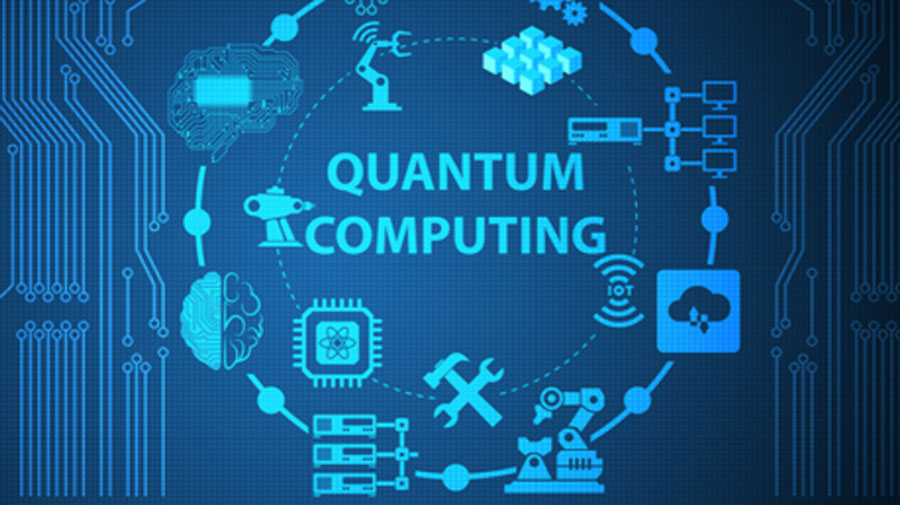Quantum computing: Understanding the basics and potential applications
If you have ever wondered about the future of computing, then you may have heard about quantum computing. Quantum computing is a new technology that has the potential to revolutionize many areas of science and technology. In this article, we will discuss what quantum computing is, its potential applications and benefits, as well as its future.
What is quantum computing?
Quantum computing is a type of computation that uses quantum mechanics principles such as superposition and entanglement to perform operations on data. Unlike classical computers, which operate on binary digits (bits) that can be either 0 or 1 at any given time, quantum computers use qubits (quantum bits) that can be both 0 and 1 simultaneously.
This ability of qubits to exist in multiple states at once allows quantum computers to perform certain computations exponentially faster than classical computers. The reason for this is that a single qubit can represent two possible values at once (0 and 1), two qubits can represent four possible values simultaneously (00, 01, 10, 11), three qubits eight possible values (000, 001,…), and so on.
The basic principles behind quantum mechanics
Quantum mechanics is a branch of physics that studies the behavior of matter and energy at the atomic and subatomic level. It describes how particles such as electrons and photons behave in ways that are not predictable using classical physics laws. Some key principles of quantum mechanics include:
- Superposition: A particle can exist in multiple states simultaneously until it is observed or measured.
- Entanglement: Two particles can become linked in such a way that their properties are dependent on each other’s properties regardless of distance between them.
- Interference: Waves associated with particles can interfere with one another constructively or destructively.
Potential applications and benefits
The potential applications for quantum computing are vast across multiple fields such as cryptography, finance, medicine, logistics, material science among others.
Cryptography
Cryptography is the practice of securing information from unauthorized access by encoding information in a way that only authorized parties can decode it. Quantum computers could potentially crack current encryption techniques used today like RSA encryption by factoring large prime numbers quickly allowing attackers to gain unauthorized access to sensitive information. On the other hand, they could also be used to create uncrackable cryptography methods based on quantum principles like Quantum Key Distribution(QKD).
Molecular simulation
Quantum computers could simulate complex molecules much faster than classical computers for developing improved materials with desired physical properties while reducing costs compared to traditional experimental methods which could take years or even decades. This breakthrough would benefit various sectors ranging from healthcare where scientists examine enzymes and proteins for drug discovery or desalination research where scientists seek new materials capable of efficiently filtering saltwater into fresh water without losing water quality.
Faster optimization
Finding optimal solutions for complex problems through brute force method requires significant computational power resources when dealing with larger datasets because it increases exponentially as data size grows. With its ability to work through different combinations quickly thanks to superposition principles; Quantum Computing provides hope for solving these optimization problems more effectively than classic methods thus revolutionizing logistics intelligence industry with faster solutions to delivery routes optimization problems or supply chain management strategy planning.
The Future of Quantum Computing
The field of quantum computing started out more as theoretical concepts but has evolved into a practical application over time due to advancements being made every year since early research was conducted back in the late ’80s till now. Although there remain some challenges before widespread adoption becomes feasible like enhancing stability more robust error correction mechanisms; researchers acknowledge if these barriers get crossed successfully; we could expect significant technological advancements within next few decades including but not limited too;
- Solving previously unsolvable problems:Ranging from enabling us better understanding our world through simulating natural phenomenon never experienced before discovering novel materials with desirable properties hitherto unknown hence opening up new business models opportunities across industries.
Closing Thoughts
In conclusion, Quantum Computing holds great promise for advancing scientific knowledge across multiple fields beyond our imagination presently but still very much remains in its infancy stage concerning development mainly due to its complexity which requires specialized talent currently scarce within labor markets today worldwide hence making it difficult/expensive undertaking requiring significant investment not just financially but also time capital-wise by individuals/institutions involved towards achieving success eventually leading exponential progress forward erasing all boundaries limiting possibilities thereby creating limitless opportunities going forward enabling us better understand our universe’s mysteries bettering humanity’s lives altogether ultimately.



